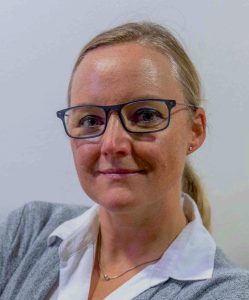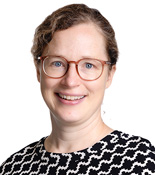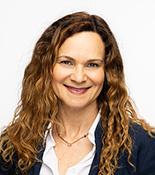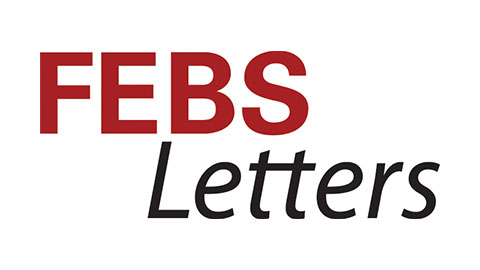
Melanie Blokesch
Global Health Institute, EPFL
Switzerland
EMBL Conference
After the success of the virtual 2022 edition, this conference will return in a virtual format.
Infectious diseases are among the most prevalent causes of human illness and death in the world. Pathogens infect humans and all life forms on Earth, being able to cross species barriers, thereby adversely impacting human and planetary health. Fundamental research in infection biology is urgently needed to find therapies for longstanding and emerging infectious diseases.
The EMBL Conference ‘The next generation in infection biology’ is a platform for late-stage postdoctoral scientists in the field of infection biology to present their work and connect with the leading European institutions in infection biology. The speakers will be chosen for their track record of research accomplishments and their high-reaching future plans. The audience will have the unique opportunity to experience cutting-edge science presented by the rising leaders in this field. The institutional partners will provide discussion and networking opportunities to connect and shape the future league of infection biologists in Europe.
“This format was really made for postdocs seeking a professorship and it is just amazing! I got to speak “face-to-face” with PIs whom I would never have had the courage to approach in a normal conference. I got insightful comments for my career and I really hope this format repeats again.” – Cláudia Vilhena, Leibniz Institute for Natural Products and Infection Biology, Germany
“The conference ‘The next generation in infection biology’ was a fantastic experience. It brought together young investigators at a transition point in their careers to become independent group leaders, and established researchers who have shaped the field of infection biology. It was a unique opportunity to share science and network, and an excellent concept altogether.” – Mariana De Niz, Institute of Molecular Medicine, Portugal

Global Health Institute, EPFL
Switzerland

Center for Integrative Infectious Disease Research
Heidelberg University
Germany

EMBL Barcelona
Spain

EMBL Hamburg
Germany

EMBL Grenoble
France

EMBL Heidelberg
Germany

EMBL Heidelberg
Germany
Please find below a list of participating institutes and universities, with more to be confirmed in the coming weeks.
Are you on social media? Post using #EMBLInfectionBiology and don’t forget to tag @EMBLEvents
| Time (Europe/Berlin) | Session |
|---|---|
| 13:20 – 13:40 | Opening remarks by scientific organisers |
| 13:40 – 14:20 | Plenary Talk Deciphering Defense Systems of 7th Pandemic Vibrio cholerae Melanie Blokesch – Global Health Institute, EPFL, Switzerland |
| 14:20 – 14:25 | Session 1: Pathogen biology Session Chairs: Sebastian Baumgarten – Institute Pasteur, France Eva Kowalinski – EMBL Grenoble, France |
| 14:25 – 14:45 | Interspecies interactions modulate pathogenicity-associated phenotypes of Clostridioides difficile Stephan Kamrad – University of Cambridge, UK Not available on demand |
| 14:45 – 15:05 | Rare infection phenotypes and how to find them Camilla Ciolli Mattioli – Weizmann Institute of Science, Israel |
| 15:05 – 15:25 | A core network in the SARS-CoV-2 Nucleocapsid NTD orchestrates RNA recognition Sophie Korn – Columbia University, USA |
| 15:25 – 15:45 | In-cell discovery in Mycoplasma pneumoniae using CryoET Rasmus Jensen – EMBL Heidelberg, Germany Not available on demand |
| 15:45 – 16:05 | Break |
| 16:05 – 16:45 | Networking Session 1 |
| 16:45 – 17:00 | EU funding infrastructure talk Jonathan Ewbank – ERINHA |
| 17:00 – 17:05 | Session 2: Host-pathogen Interfaces Session Chairs: Maria Bernabeu – EMBL Barcelona, Spain Wolf-Dietrich Hardt – ETH Zurich, Institute of Microbiology, Switzerland |
| 17:05 – 17:25 | The battle between host and uropathogen in a human bladder microtissue model Carlos Flores – Biozentrum, University of Basel, Switzerland |
| 17:25 – 17:45 | Mapping the host-Shigella interface with proximity biotinylation Ana Teresa Lopez Jimenez – London School of Hygiene and Tropical Medicine, UK Not available on demand |
| 17:45 – 18:05 | Pseudomonas aeruginosa faces fitness trade-offs at the airway mucosal surface Lucas Meirelles – EPFL Switzerland Not available on demand |
| 18:05 – 18:25 | Viral-bacterial co-infections screen in vitro reveals molecular processes affecting pathogen proliferation and host cell viability Philipp Walch – University of Lausanne, Switzerland |
| Time (Europe/Berlin) | Session |
|---|---|
| 11:00 – 12:15 | Career panel discussion: Preparing for an academic interview |
| 12:15 – 13:00 | Break |
| 13:00 – 13:10 | Introduction remarks |
| 13:10 – 13:50 | Plenary talk Malaria research: from basic insights to vaccine studies Freddy Frischknecht – Center for Integrative Infectious Disease Research (CIID), Heidelberg University, Germany |
| 13:50 – 13:55 | Session 3: Host-pathogen Interfaces II Session Chairs: Maximiliano Gutierrez – The Francis Crick Institute, UK Jan Kosinski – EMBL Hamburg, Germany |
| 13:55 – 14:15 | Characterizing Host Genetics-Microbiome Interactions Prior to and During the Onset of Atopic Dermatitis and Food Allergy in Infancy Zeyang Shen – National Human Genome Research Institute, NIH, USA |
| 14:15 – 14:35 | Hidden threats: A new paradigm in our understanding of antigenic variation and chronic, asymptomatic malaria infections Francesca Florini – Weill Cornell Medicine, USA |
| 14:35 – 14:55 | C4b-Binding Protein and Factor H attenuate NLRP3 Inflammasome-mediated signalling response during Group A Streptococci infection in human cells Serena Bettoni – University of Bristol, UK Not available on demand |
| 14:55 – 15:15 | Break |
| 15:15 – 16:00 | Networking Session 2 |
| 16:00 – 16:05 | Session 4: Anti-infectives (vaccines & antimicrobials) Session Chairs: Dirk Bumann – Biozentrum, University of Basel, Switzerland Nassos Typas – EMBL Heidelberg, Germany |
| 16:05 – 16:25 | Modulation of vaccine-induced immunity via the gut microbiome Kelsey Huus – Max Planck Institute for Biology Tübingen, Germany |
| 16:25 – 16:45 | Microbial context-dependence in the evolution of antibiotic resistant Klebsiella pneumoniae Michael Knopp – EMBL Heidelberg, Germany Not available on demand |
| 16:45 – 17:05 | Goblet cell invasion by Pseudomonas aeruginosa promotes breaching of human respiratory epithelia A. Leoni Swart – University of Basel, Switzerland |
| 17:05 – 17:25 | Break |
| 17:25 – 18:10 | Networking Session 3 |
| 18:10 – 18:15 | Session 5: Computational methods and analyses for infection Session Chairs: Oliver Billker – The Laboratory for Molecular Infection Medicine Sweden (MIMS), Umeå University, Sweden Fernanda Pinheiro – Human Technopole, Italy |
| 18:15 – 18:35 | A large language model for studying bacterial genome architecture, population structure and epidemiology Samuel Horsfield – EMBL-EBI, UK |
| 18:35 – 18:55 | Bayesian modeling of bottleneck effects enables organoid infection screens Laura Jenniches – Helmholtz-Institut für RNA-basierte Infektionsforschung, Germany |
| 18:55 – 19:15 | The role of non-coding RNAs in regulating gametocyte development in malaria parasites Janne Grünebast – University of Maryland School of Medicine, USA |
| 19:15 – 19:30 | Closing remarks |
Registration Fees (include access to all of the talks and online group discussions, and help us cover our costs to run the event. For further information please refer to the FAQ page):
| Virtual Academia | €225 |
| Virtual PhD Student | €175 |
| Virtual Industry | €225 |
Accredited journalists may be eligible to register for complimentary registration. Registrants may be required to provide accreditation or equivalent proof of press membership after registration. Please contact Sophie Dutzi for more information.
Registration will be on a first-come-first-served basis. Your place can only be confirmed after payment of the registration fee.
Types of payments accepted are international bank transfers and credit card payments.
Instructions for Postdocs wishing to apply for an oral presentation
Only registered participants are eligible to submit an abstract. We only accept online abstract submissions.
After you have logged in and successfully registered, you will receive an email asking you to submit your abstract of your current work, general directions of your future lab, specific aims of your research plan, and include a brief CV with three selected publications. Additionally you will be asked to submit a 5 minutes video short talk. Click on the link provided and enter your application details. Alternatively, you can submit your abstract by clicking on the link on the confirmation page directly after registering. Your application will only be complete when both, abstract and short talk video, have been submitted. Plenary talks will be selected from the applications based on all submitted material. The submitted application material will be accessible to all participants throughout the conference.
A selection process will take place with the results announced 3-4 weeks after the abstract submission deadline.
For infection biology institutes wishing to participate, please contact the organisers.
All academic and student registrants are invited to apply for a registration fee waiver, provided by the EMBL Advanced Training Centre Corporate Partnership Programme and EMBO. The registration fee waiver covers the registration sum that you have paid to attend the meeting. Conference participants are not required to pre-pay the registration fee to be selected for a fee waiver for a virtual meeting. If you have already paid the registration fee and are awarded a fee waiver, it will be reimbursed after the meeting.
Applications for financial assistance can be submitted via the submission portal (for the submission of abstracts for conferences or the submission of motivation letters for courses) by completing the Financial Assistance Application Section (underneath the section for entering abstract/motivation letter information). The link to the portal can be found in the registration confirmation email that you will receive after registering for the conference.
The scientific organisers will select the recipients of registration fee waivers during the abstract selection process for conferences and the participant selection process for courses. Results will be announced approximately 3 – 4 weeks before the event start date. Selection results do not impact your admission to the meeting. Registration fee waiver selection is based on your current work or study location, your motivation for applying, the reasons for needing financial support and the impact this event will have on your career.
Check our list of external funding opportunities and information on attending a conference as an event reporter.
For further information about financial assistance please refer to the FAQ page.
Please do:
Please don’t:
Additional information can be found in our Code of Conduct.
It is important to stay healthy and move around, especially when you are attending an event virtually. We have put together a few coffee break stretches and yoga videos. You can find these under ‘resources’ on the conference platform.
Please use the Q&A function. It is possible to send a direct message to participants, poster presenters, and speakers within the conference platform.
If you have any other questions, you can go to the Help Desk on the conference platform. Click on ‘more’ on the top menu and click Help Desk.
The programme is planned based on Central European Time (CET) or Central European Summer Time (CEST) unless otherwise stated. As many virtual participants are attending from around the world, we do our best to accommodate as many time zones as possible when creating the programme. Please take your time zone into consideration when planning your attendance. Remember to set your time zone in your account.
We are using a virtual event platform for this conference. More information about the platform will be shared ahead of the conference.
Please find additional information including FAQs and terms and conditions on our Information for Participants page.
Event sponsor
Event supporter

Media partners
Cell Host and Microbe, a Cell Press Journal
Disease Models & Mechanisms, The Company of Biologists Journal
EMBO Molecular Medicine, an EMBO Press journal
International Union of Biochemistry and Molecular Biology
Medinformatics, a Bon View Publishing journal
Open Biology, a Royal Society journal
Sponsorship opportunities
We offer a variety of event sponsoring possibilities, with the flexibility to select a set sponsorship package or combine individual sponsorship options to suit your event budget. Discounts are available for companies sponsoring multiple events at EMBL Heidelberg. View other conferences, or contact sponsorship@embl.de for further information on sponsoring possibilities.
If you are interested in becoming a media partner of this event, please visit our media partnerships webpage.
EMBL wishes to warn sponsors of EMBL conferences and courses of fraudulent schemes purporting to offer sponsorship opportunities on behalf of EMBL or affiliated with EMBL officials. One current scam campaign of which we are aware is conducted using the name ‘Judy Eastman’ (judy@gopcontact.a2hosted.com) and entails approaches to sponsors offering sponsorship opportunities on EMBL’s behalf. Please be kindly advised that all relevant communication regarding sponsorship of EMBL conferences, symposia and courses is handled by EMBL directly and is sent from an official EMBL account. EMBL does not work with any external providers on sponsorship acquisition.
Please also note that:
Suspicious communications purportedly from, for or on behalf of EMBL should be reported to EMBL at the following email address sponsorship@embl.de.
Want to let others know you’re attending this event? Take a look at our shareable media and feel free to use them in your social media channels or presentations.
Date: 14 - 15 Nov 2024
Location: Virtual
Deadline(s):
Abstract submission: Closed
Registration: Closed
Organisers:
Contact: Sophie Dutzi